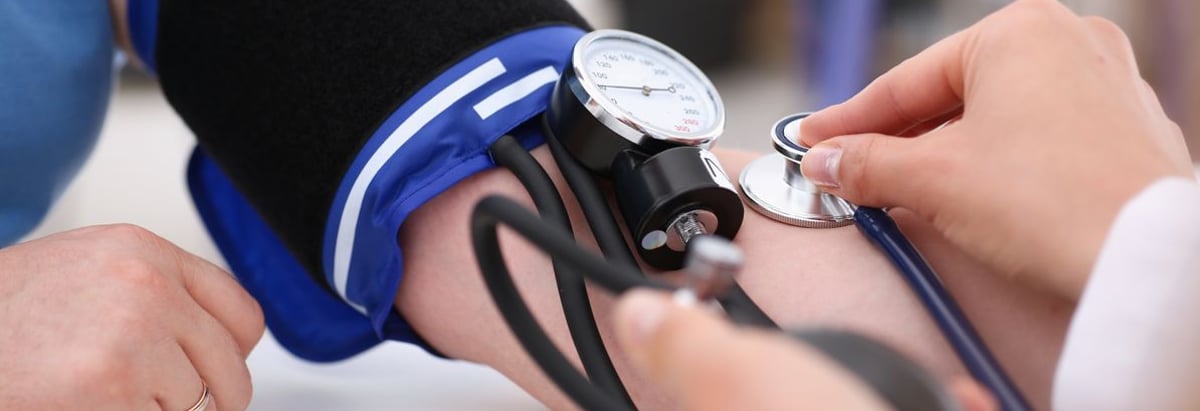Stock Analysis

David Iben put it well when he said, 'Volatility is not a risk we care about. What we care about is avoiding the permanent loss of capital.' When we think about how risky a company is, we always like to look at its use of debt, since debt overload can lead to ruin. Importantly, Quipt Home Medical Corp. (TSE:QIPT) does carry debt. But should shareholders be worried about its use of debt?
When Is Debt Dangerous?
Debt and other liabilities become risky for a business when it cannot easily fulfill those obligations, either with free cash flow or by raising capital at an attractive price. If things get really bad, the lenders can take control of the business. While that is not too common, we often do see indebted companies permanently diluting shareholders because lenders force them to raise capital at a distressed price. Of course, debt can be an important tool in businesses, particularly capital heavy businesses. When we examine debt levels, we first consider both cash and debt levels, together.
Check out our latest analysis for Quipt Home Medical
What Is Quipt Home Medical's Debt?
As you can see below, Quipt Home Medical had US$78.7m of debt, at June 2024, which is about the same as the year before. You can click the chart for greater detail. However, because it has a cash reserve of US$14.4m, its net debt is less, at about US$64.3m.
A Look At Quipt Home Medical's Liabilities
We can see from the most recent balance sheet that Quipt Home Medical had liabilities of US$66.8m falling due within a year, and liabilities of US$73.2m due beyond that. On the other hand, it had cash of US$14.4m and US$31.4m worth of receivables due within a year. So its liabilities outweigh the sum of its cash and (near-term) receivables by US$94.2m.
This deficit is considerable relative to its market capitalization of US$143.1m, so it does suggest shareholders should keep an eye on Quipt Home Medical's use of debt. Should its lenders demand that it shore up the balance sheet, shareholders would likely face severe dilution.
We measure a company's debt load relative to its earnings power by looking at its net debt divided by its earnings before interest, tax, depreciation, and amortization (EBITDA) and by calculating how easily its earnings before interest and tax (EBIT) cover its interest expense (interest cover). The advantage of this approach is that we take into account both the absolute quantum of debt (with net debt to EBITDA) and the actual interest expenses associated with that debt (with its interest cover ratio).
Quipt Home Medical has a very low debt to EBITDA ratio of 1.3 so it is strange to see weak interest coverage, with last year's EBIT being only 0.59 times the interest expense. So while we're not necessarily alarmed we think that its debt is far from trivial. Shareholders should be aware that Quipt Home Medical's EBIT was down 53% last year. If that decline continues then paying off debt will be harder than selling foie gras at a vegan convention. The balance sheet is clearly the area to focus on when you are analysing debt. But ultimately the future profitability of the business will decide if Quipt Home Medical can strengthen its balance sheet over time. So if you're focused on the future you can check out this free report showing analyst profit forecasts.
Finally, a company can only pay off debt with cold hard cash, not accounting profits. So it's worth checking how much of that EBIT is backed by free cash flow. Happily for any shareholders, Quipt Home Medical actually produced more free cash flow than EBIT over the last two years. There's nothing better than incoming cash when it comes to staying in your lenders' good graces.
Our View
Neither Quipt Home Medical's ability to grow its EBIT nor its interest cover gave us confidence in its ability to take on more debt. But its conversion of EBIT to free cash flow tells a very different story, and suggests some resilience. It's also worth noting that Quipt Home Medical is in the Healthcare industry, which is often considered to be quite defensive. When we consider all the factors discussed, it seems to us that Quipt Home Medical is taking some risks with its use of debt. While that debt can boost returns, we think the company has enough leverage now. The balance sheet is clearly the area to focus on when you are analysing debt. However, not all investment risk resides within the balance sheet - far from it. Case in point: We've spotted 1 warning sign for Quipt Home Medical you should be aware of.
If you're interested in investing in businesses that can grow profits without the burden of debt, then check out this free list of growing businesses that have net cash on the balance sheet.
Valuation is complex, but we're here to simplify it.
Discover if Quipt Home Medical might be undervalued or overvalued with our detailed analysis, featuring fair value estimates, potential risks, dividends, insider trades, and its financial condition.
Access Free AnalysisHave feedback on this article? Concerned about the content? Get in touch with us directly. Alternatively, email editorial-team (at) simplywallst.com.
This article by Simply Wall St is general in nature. We provide commentary based on historical data and analyst forecasts only using an unbiased methodology and our articles are not intended to be financial advice. It does not constitute a recommendation to buy or sell any stock, and does not take account of your objectives, or your financial situation. We aim to bring you long-term focused analysis driven by fundamental data. Note that our analysis may not factor in the latest price-sensitive company announcements or qualitative material. Simply Wall St has no position in any stocks mentioned.
About TSX:QIPT
Quipt Home Medical
Through its subsidiaries, engages in the provision of durable and home medical equipment and supplies in the United States.

